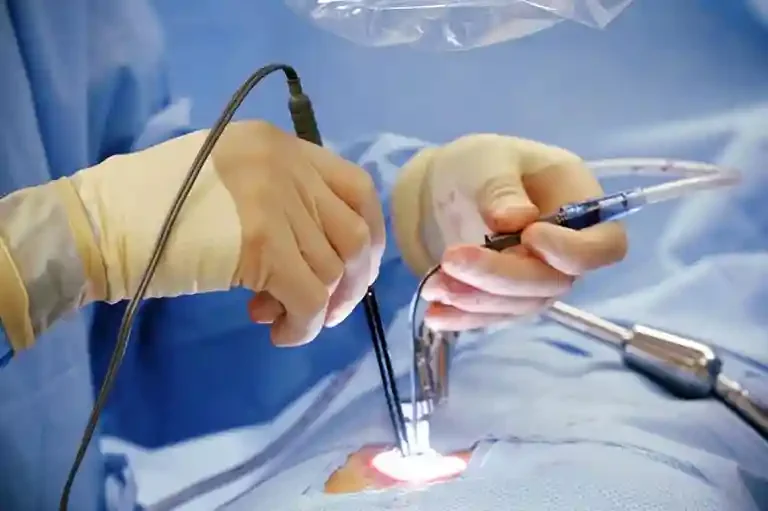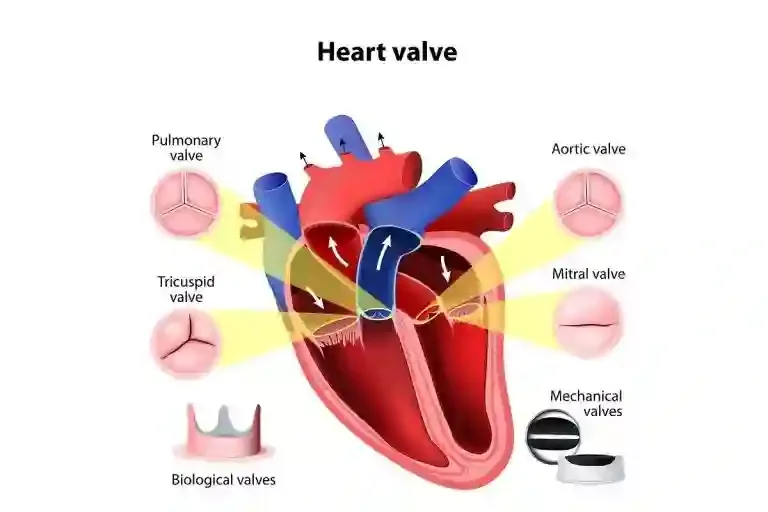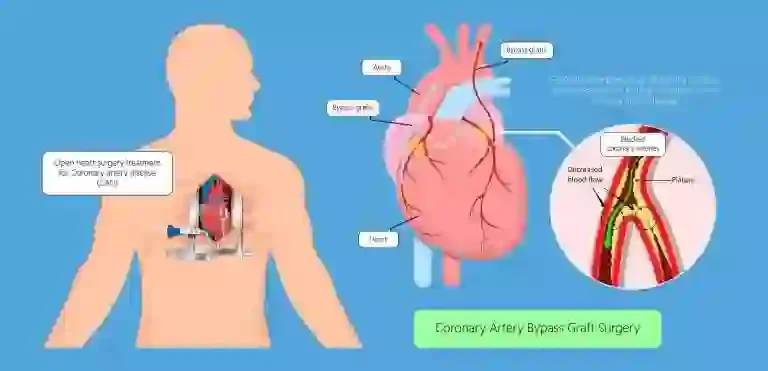What is Minimal Invasive Cardiac Surgery (MICAS)?
Minimally invasive heart surgery (also called keyhole surgery) is a newer form of cardiac surgery. In this type of heart surgery, small incisions are done, without dividing the central breastbone or sternum. That means instead of “cutting open the chest” from midline as they do with traditional open heart surgery, a small and cosmetic incisions using specialized instruments is used for procedure.
How is the procedure carried out?
MICS procedure is carried out through a small 5 cm incision on the side of the chest (mini thoracotomy) without damaging any bones. In females, the incision is under the breast fold making it even more cosmetic.
- Similar to a regular heart surgery, the operation is performed using all arteries or a combination of arteries and veins removed from the leg.
- The vessel from the leg in these operations is also removed endoscopically without cutting the skin over the leg.
- Special instruments, camera and cannulas are used for performing the surgery through this small incision.
Is MICAS CABG a beating heart operation?
Yes, it is an off pump or beating heart operation. The support of a pump may rarely be required but the operation is still performed on the beating heart. Pump support may particularly be used when the heart is weak.
What are the Common Indications of the MICAS? :
- Coronary artery disease – Minimally invasive coronary artery bypass
- Cardiac rhythm disorders- Minimally invasive atrial fibrillation ablation
- Mitral valve disease- Minimally invasive mitral valve repair placement/repair
- Aortic valve disease- Minimally invasive aortic valve replacement/repair.
- Congenital cardiac disease
- Removal of cardiac tumours
How does it differ from conventional cardiac surgery?
- No bones are cut like in conventional heart surgery hence reducing pain, retaining function and having a positive effect on breathing.
- The incision measures just 2-3inches which makes it impossible to tell that a heart surgery has been performed.
- The return to normal life is faster and patient can perform daily activities like including driving or other activities without any disruption.
- Blood loss is almost negligible and therefore eliminating blood transfusion and eliminating blood borne infection.
- The procedure is ideal in diabetics and older patients who have poor resistance to infections as all infections are reduced whether it is wound infections or post-surgical lung infection.
- The procedure lasts only 4 days.
What are the contraindications for the surgery?
- Acute myocardial infarction
- Severe peripheral vascular disease (arteries and veins)
- Severe left ventricular dysfunction of the heart
- Morbid obesity
What are the benefits of MININMAL INVASIVE cardiac surgery?
- Faster recovery to normal work
- Small cosmetic incision
- Less painful
- Lesser blood loss and reduced amount of blood transfusions
- Lesser chances of infection
- Better wound healing
- Earlier mobilisation and shorter hospital stay after surgery in ICU
- Better quality of life after surgery
What is the risk of infections after MICAS CABG?
The risk of infection is close to zero. All infections are reduced dramatically in MICS CABG even in diabetics. It is due to the fact that the incision is small and no bone is fractured.
What are the precautions I would have to take after MICS?
After minimally invasive heart surgery, you may have an improved quality of life and reduced symptoms.
- Incorporate healthy lifestyle changes — such as physical activity, a healthy diet, stress management and avoiding tobacco use — into your life.
- Your doctor will instruct you about when you can return to daily activities, such as working, driving and exercise. Attend regular follow-up appointments with your doctor. You may have several tests to evaluate and monitor your condition.
- Participate in cardiac rehabilitation — a program of education and exercise designed to help you improve your health and help you recover after heart surgery.
- To keep your heart healthy after surgery, it is important to make lifestyle changes and take your medications as prescribed.
To know more about Minimal Invasive Cardiac Surgery please Visit us at Wockhardt Hospitals in Mira Road Understand all your cardiac conditions with our experienced cardiac surgeons.
Dr. Manish Hinduja M.S., M.Ch.(CTVS), D.N.B.(CTS) is a an internationally acclaimed Cardio Thoracic & Vascular Surgeon working as Full Time Consultant at Wockhardt Hospitals, Mira Road.
He has over 9 years of experience and has operated more than 5000 cases in his field. He specialises in Minimal Invasive Cardiac Surgery at the hospital.












